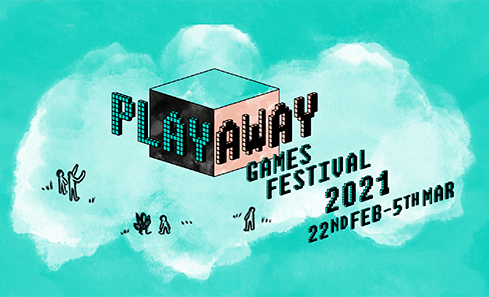
The recent Tinderbox PlayAway Games Festival showcased and celebrated creativity, diversity, innovation and imagination in games and interactive media across the globe.
For this month’s spotlight Tinderbox Collective Project Manager, Musical Director and freelance Games Composer Luci Holland writes about Scotland’s games music industry:
“Games and everything that goes into making them is a massive and booming global industry, and the same goes for the game music scene especially as the genre and artform gains more mainstream recognition and public platforms. The UK has a vibrant game music scene with a rich range of work taking place, including a number of notable award-winning composers and musicians such as Nainita Desai, Russel Shaw, Jessica Curry, Gareth Coker, James Hannigan and Chipzel.
British orchestras like the London Philharmonic Orchestra have released orchestrated game music albums like The Greatest Video Game Music series, as well as presented concerts like Final Fantasy XV Live at Abbey Road Studios (with music composed by Yoko Shimomura); and the London Symphony Orchestra are behind the performance of game soundtracks such as The Last Guardian (composed by Takeshi Furukawa), Tomb Raider: Angel of Darkness (Peter Connelly), and 2019 score Star Wars Jedi: Fallen Order (Stephen Barton & Gordy Haab).
In addition to the crafting of games music, there are several UK outfits like the London Video Game Orchestra who contribute to the scene by performing and showcasing mesmerising pieces from games, as well as broadcasts like Scala Radio - The Console, a show that I present each week and have the pleasure of celebrating great video games music on national radio.
Scotland itself also has an important history with games & music – with notable projects such as American composer Joel McNeely recording with the Royal Scottish National Orchestra for the Star Wars Shadows of the Empire multimedia project soundtrack in 1996, and renowned games & media composers who hail from Scotland like Scottish musician & producer Ged Grimes scoring games such as Enter the Matrix, Earthworm Jim 3D, Quarrel, and Bards Tale IV: Barrows Deep (a Gaelic-inspired game and soundtrack), Grant Kirkhope (Banjo-Kazooie, GoldenEye 007), Lorne Balfe (His Dark Materials, Assassin’s Creed III), and Kenneth Young (Astro's Playroom, LittleBigPlanet).
The BAFTAs have celebrated and recognised many composers working in games too, with Andrew Hale & Simon Hale winning for Original Music in 2011 with L.A. Noire; Jessica Curry winning a BAFTA for Music in 2015 with Everybody’s Gone to the Rapture; Lyndon Holland winning in 2016 for Virginia; and British Sea Power winning in the Music category in 2019 for Disco Elysium, to spotlight a few!
My advice for anyone interested in a career in games music is to learn and improve your knowledge and skill in what you can control – and for me that comes down to a few things: Firstly – have an interest in creating music and improving your craft! Hopefully this exists for you already or is on its way, but this can manifest in any number of creative approaches. Whether you are playing or singing and recording it, or noting your music down somehow, or making beats electronically. Explore and enjoy it, and always keep making music! Related to this, expand your musical horizons – seek out and listen to music from as many different places and people as you can! Embrace the journey of finding new music, techniques and knowledge.
Another important point for me, is that while you don’t need to be a keen gamer yourself to enjoy or write music for the genre, there are some major differences in scoring for a game as there are to other media. So just like with practicing and researching your own music, it’s imperative to at least play, explore and study games, to understand & appreciate the creative possibility of interactive media, and to have some familiarity with the terms and methods used.
The most exciting thing for me with games is the interactive component, and the potential to craft powerful experiences for players by sound & music reacting to their choices. As well as the creative side of this, this also comes down to the technology that games are built and made in. To really unlock the creative horizons of making audio for games, understanding the tech involved is really important – one great way to do this is to watch YouTube videos and talks (like those available from the recent Tinderbox PlayAway Games Festival)! Even if you’re not a master at using the tech found in games or recording & producing music yourself, having some familiarity with these processes is key.
As a final bit of advice, I’d add to look for communities local to you who are active in sharing and supporting game development. Here in Scotland we have local game and tech associations like the Scottish Game Developers Association, Scottish Games Network, CodeBase, and CoderDojo Scotland, and Tinderbox Lab, to highlight a few. Please feel free to get in touch with us at Tinderbox Collective if you have any questions or need some advice, and we’ll try our best to help.”